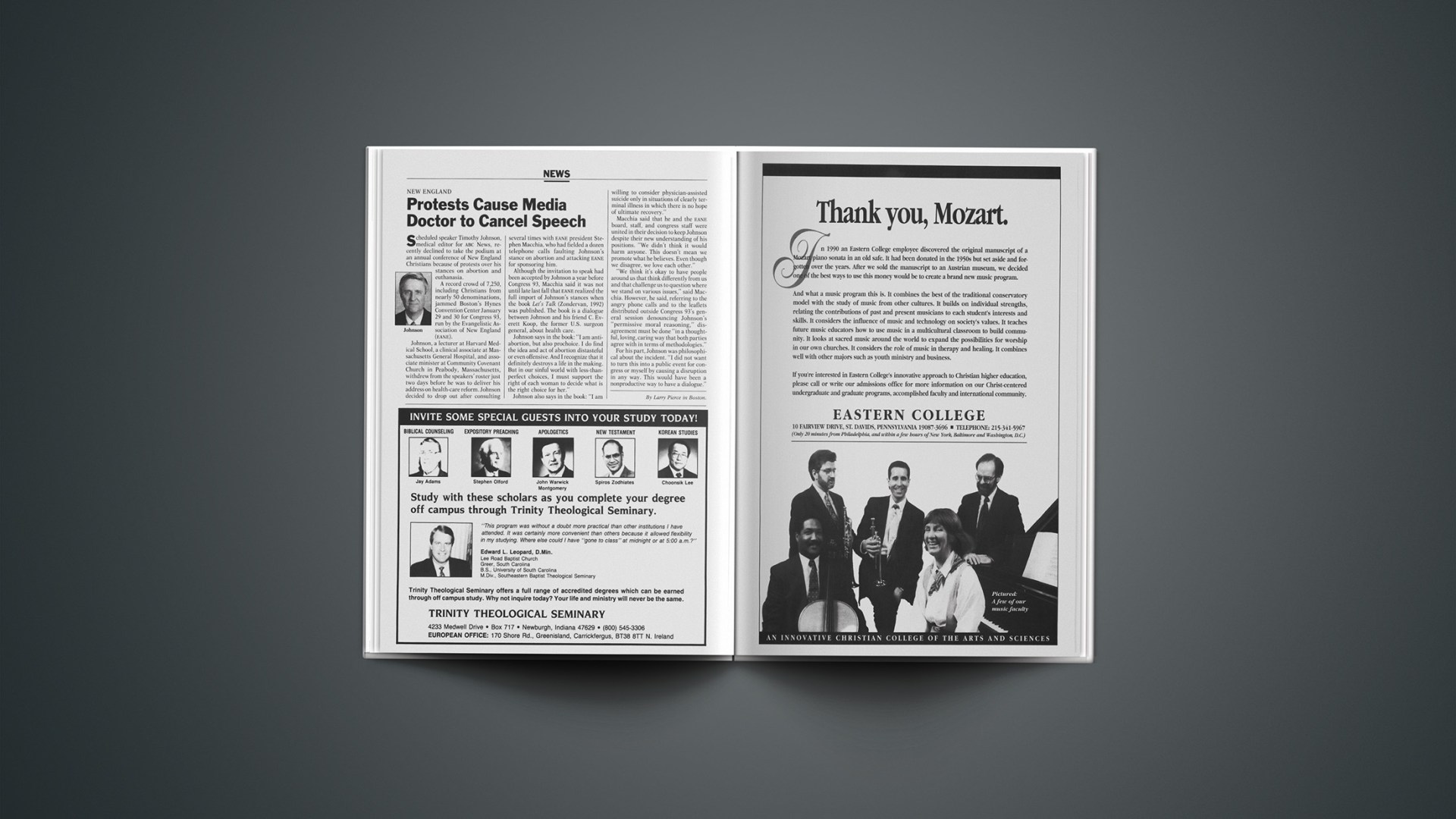Scheduled speaker Timothy Johnson, medical editor for ABC News, recently declined to take the podium at an annual conference of New England Christians because of protests over his stances on abortion and euthanasia.
A record crowd of 7,250, including Christians from nearly 50 denominations, jammed Boston’s Hynes Convention Center January 29 and 30 for Congress 93, run by the Evangelistic Association of New England (EANE).
Johnson, a lecturer at Harvard Medical School, a clinical associate at Massachusetts General Hospital, and associate minister at Community Covenant Church in Peabody, Massachusetts, withdrew from the speakers’ roster just two days before he was to deliver his address on health-care reform. Johnson decided to drop out after consulting several times with EANE president Stephen Macchia, who had fielded a dozen telephone calls faulting Johnson’s stance on abortion and attacking EANE for sponsoring him.
Although the invitation to speak had been accepted by Johnson a year before Congress 93, Macchia said it was not until late last fall that EANE realized the full import of Johnson’s stances when the book Let’s Talk (Zondervan, 1992) was published. The book is a dialogue between Johnson and his friend C. Everett Koop, the former U.S. surgeon general, about health care.
Johnson says in the book: “I am antiabortion, but also prochoice. I do find the idea and act of abortion distasteful or even offensive. And I recognize that it definitely destroys a life in the making. But in our sinful world with less-than-perfect choices, I must support the right of each woman to decide what is the right choice for her.”
Johnson also says in the book: “I am willing to consider physician-assisted suicide only in situations of clearly terminal illness in which there is no hope of ultimate recovery.”
Macchia said that he and the EANE board, staff, and congress staff were united in their decision to keep Johnson despite their new understanding of his positions. “We didn’t think it would harm anyone. This doesn’t mean we promote what he believes. Even though we disagree, we love each other.”
“We think it’s okay to have people around us that think differently from us and that challenge us to question where we stand on various issues,” said Macchia. However, he said, referring to the angry phone calls and to the leaflets distributed outside Congress 93’s general session denouncing Johnson’s “permissive moral reasoning,” disagreement must be done “in a thoughtful, loving, caring way that both parties agree with in terms of methodologies.”
For his part, Johnson was philosophical about the incident. “I did not want to turn this into a public event for congress or myself by causing a disruption in any way. This would have been a nonproductive way to have a dialogue.”
By Larry Pierce in Boston.










